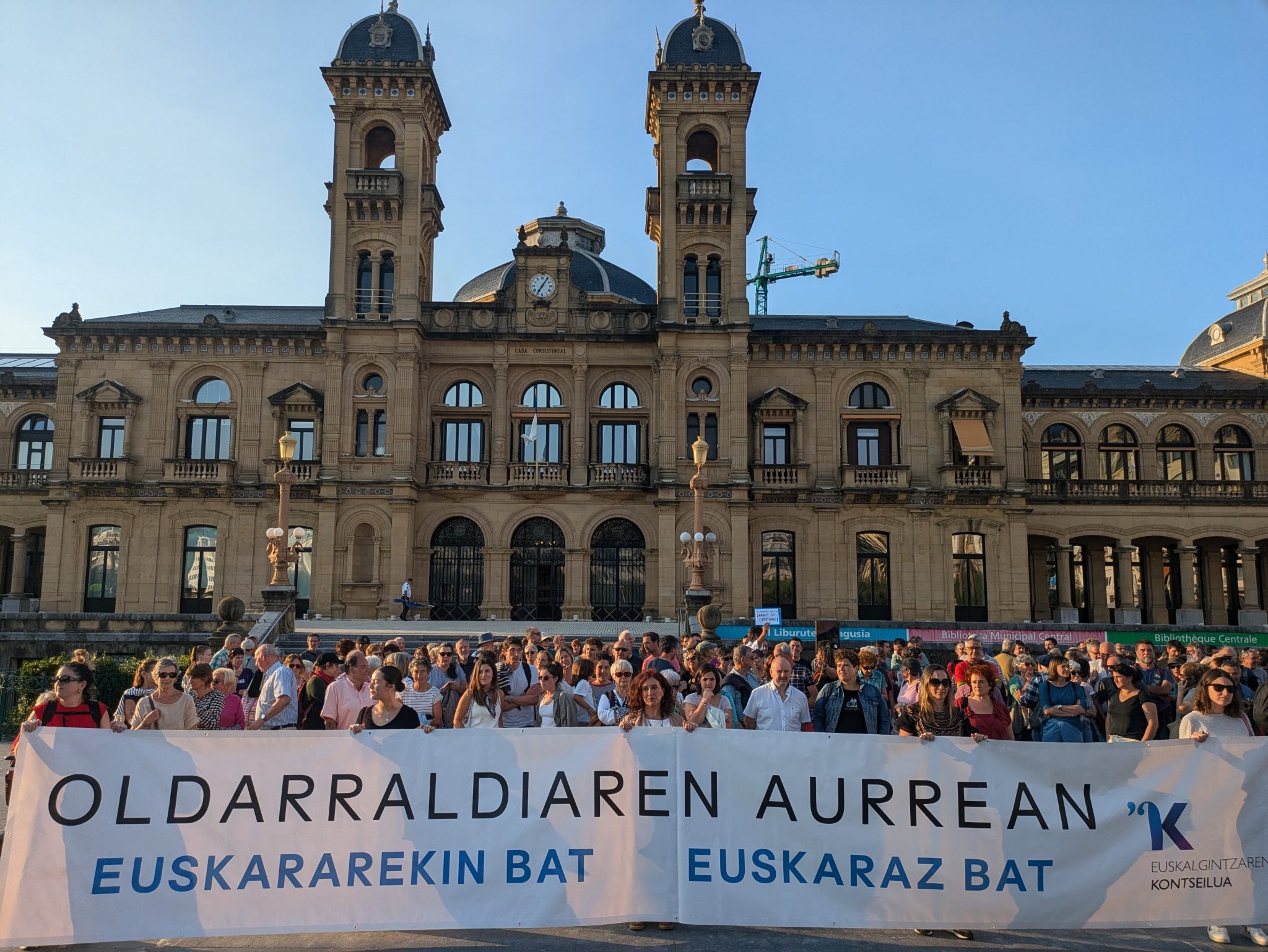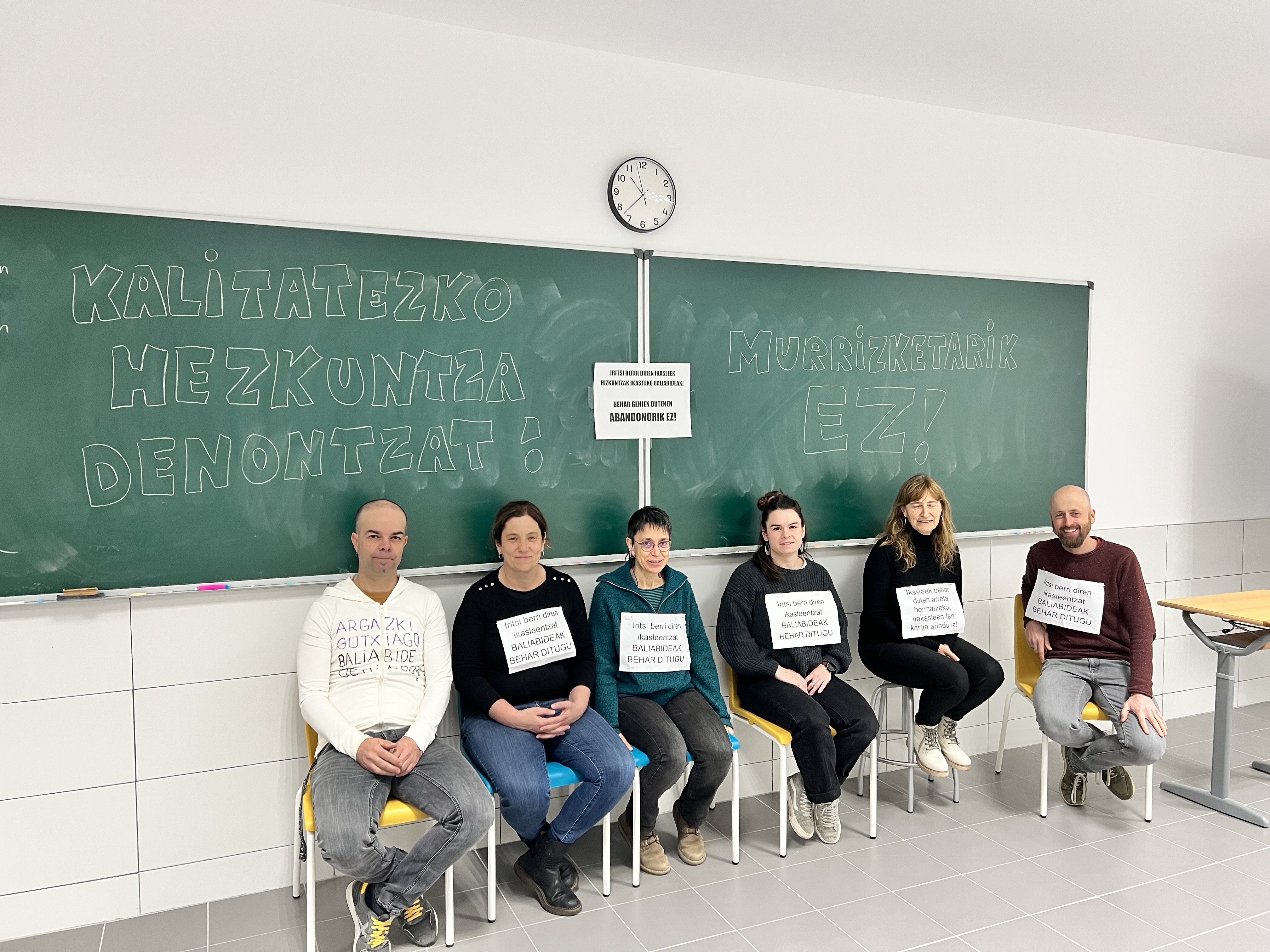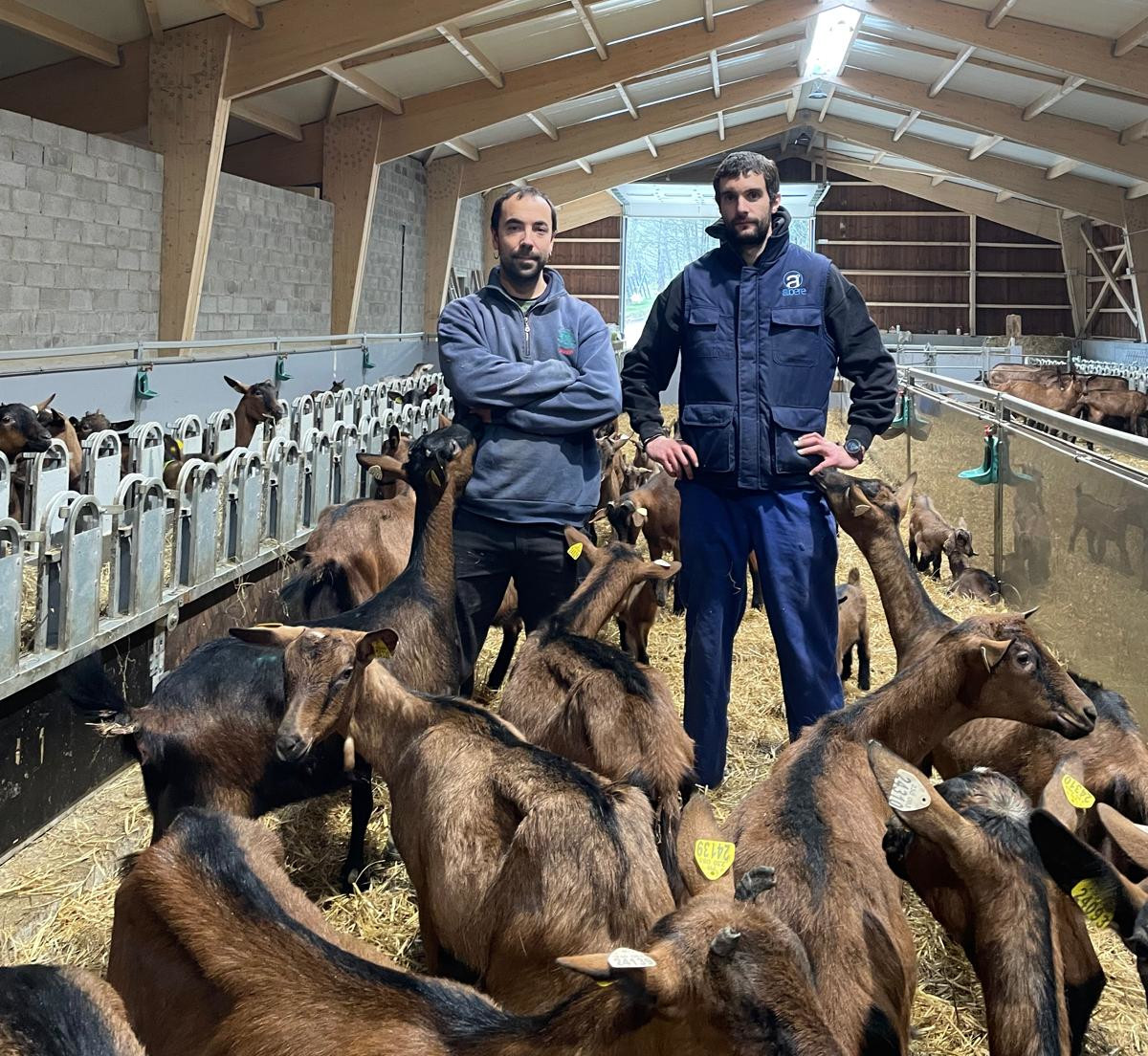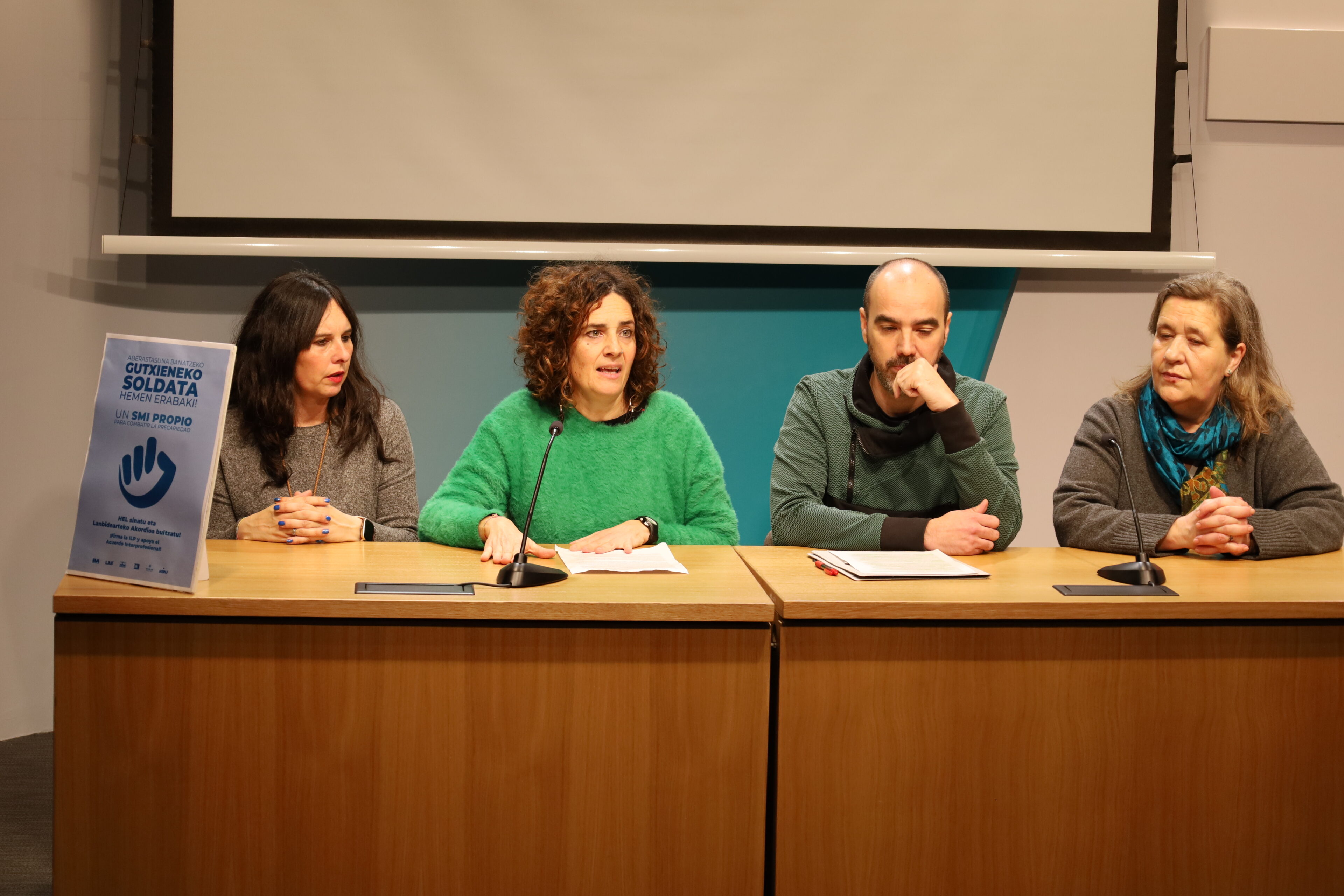We've squeezed the South of the world out with the IMF.
- North has stolen $152 trillion from the South of the world in the last six decades because of the inequality of change: prices and lower wages in poor countries make there an imbalance in the trade balance. But this situation has been created voluntarily by institutions such as the International Monetary Fund, a financial institution with a dark history and a darker task that establishes rules of play, as was recently done in Argentina with the “soy dollar”.
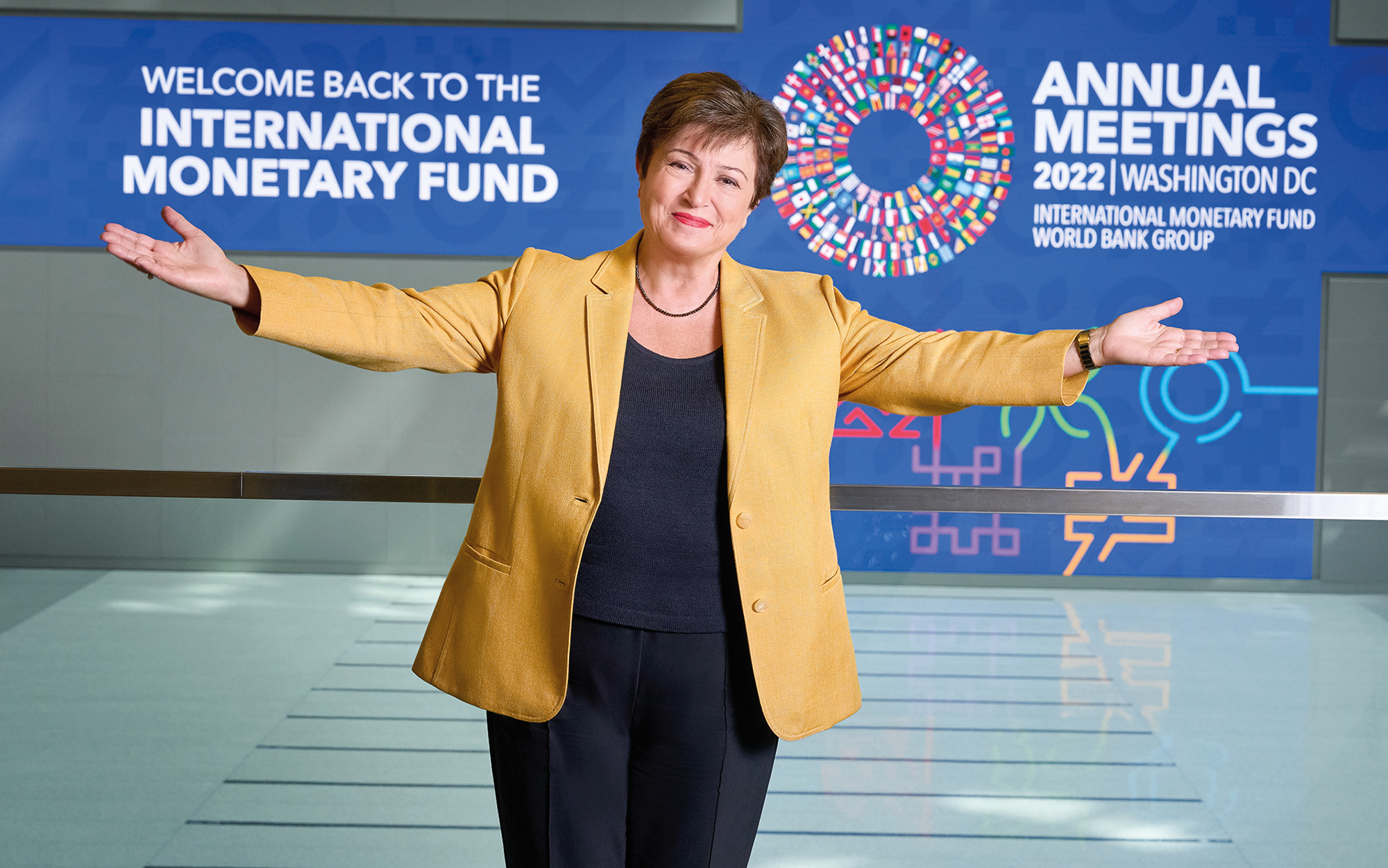
Finance ministers from 180 countries around the world have been convened by the International Monetary Fund (IMF) and the European Bank at the annual meeting in Washington on 15 and 16 October, for the first time in three years in person. And, among other things, they hear the latest warning from Kristalina Georgieva, director of the IMF, that the world is about to fall into recession, so we need to lower growth forecasts and “stabilize” the economy, even if that means “short-term suffering”. But Georgieva's headaches are other. As a result of the strength acquired by the dollar, a quarter of the developing countries have been unable to settle their debts, or have difficulty in selling their bonds, which, of course, is of much greater concern to the world ' s largest creditor, the IMF, than the suffering of the citizens.
In Washington, he listened to Sergio Massa, who was recently appointed minister of economy in August in Argentina. He knows the woman in front of him very well. In Argentina, inflation is on the verge and the banks are unreservedly, and Massa has been negotiating with the IMF for weeks to push forward the soya dollar. By exporting the cereal that has become the country’s main monoculture, it is a prize to prevent the terrible decline of the Argentine peso against the dollar, to encourage producers to export and to end the shortage of dollars. But the IMF is in the hands of thirty-one million, as it granted Argentina the largest loan in its history in 2018 (57 billion dollars) and is now going to implement a harsh economic program to make the last debt payment (2.8 billion dollars).
The case of the Argentine dollar soybean is a clear sign of the monetary imbalance in international trade between the “rich” and the South, long known as Unequal exchange or “exchange difference”. “Wages and the price of natural resources are much lower in the Global South than in the North, poor countries need to export much more additional work and resources than they do to maintain balanced trade in their currency. This generates a continuous transfer of work and ecology from the periphery to the center, developing the last and impoverishing the first”. Dylan Sullivan, economist at the Department of Political Economics at the University of Sydney, explains this.
Sullivan is clear that the huge level of consumption of Westerners is in the exploitation and poverty of the “periphery”
Sullivan published last year a study in the journal New Political Economy, in which several members collaborated with figures on world trade policy. The research background is summarized in the blog of the department, in the article The Global South has lost $152 trillion through unequal exchange since 1960 (“The Global South has lost $152 trillion since 1960 for the exchange difference”) and has been disseminated in Spanish by the digital weekly Sin Permit. Using an exchange rate that equals purchasing power, they estimate that “developing” countries lost $2.2 trillion in 2017, which were at the hands of “advanced economies” (an US resident earned an average of $2,634 for this exchange difference and one from Australia $3,116). “These resources could end severe poverty fifteen times, but instead they were transferred free of charge to the center,” he says.
The annual benefits of this imbalance for the countries of the North have been 5.2% of gross domestic product in recent decades, higher than the growth rate. Sullivan is clear that the huge level of consumption of Westerners is based on the exploitation and poverty of the “periphery”. A broader calculation has also been made: If we take into account the surplus value of what has been removed since 1960, when decolonization processes gained strength, the loss would be USD 152 trillion for countries such as China, Southeast Asia, Pacific, North Africa, South Sahara Africa, the European periphery, Central South America and others.
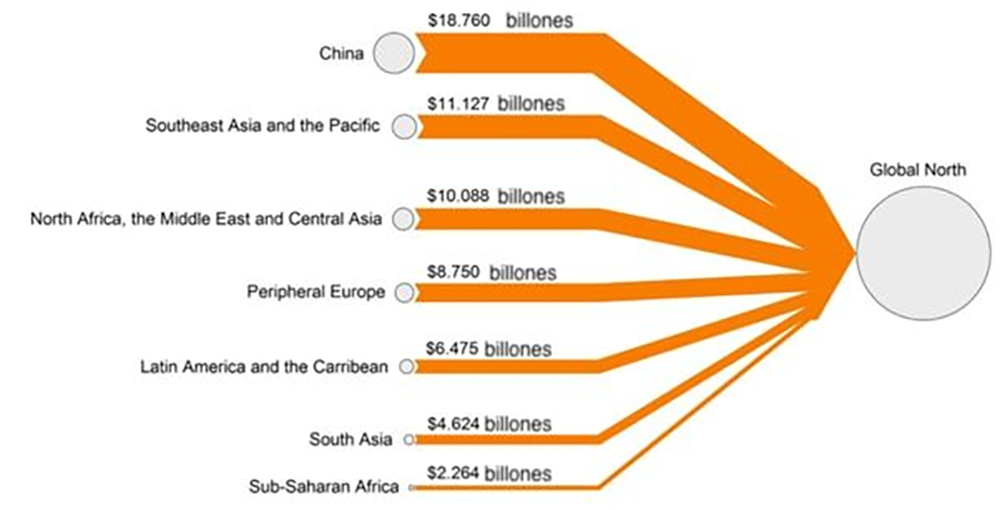
IMF, the world's three most hated letters
Those who criticize the theory of inequality of change say that price differences between countries are about productivity. In other words, workers in the South are less effective at work and therefore have lower wages. To refute this claim of empty racism, the economist sets an example: In Mexico, metal, electronics and sewing workers produce 10 to 40 percent more products in an hour than Americans, but a Mexican loses an average of $1,619 a year with this unfair trading system.
So if it's not something that has emerged in a so-called "natural" way, how could you explain the disadvantage of the South? Sullivan focuses on what he calls the “imperialist assault”, on the strategy undertaken by the World Bank and the IMF to internalize the economies of poor countries and deregulate labour markets. Reading the acronyms of these organizations, we should know what they came up for after the 1944 Bretton Woods conference: “Above all, the kind of multilateralism that was in the interest of the United States in the field of international trade to ensure, eliminating any restrictions on free trade,” wrote historian Josep Fontana in the famous book For the Sake of Empire.
IMF action is directly related to the general impoverishment of many continents in its recent history. With Africa’s “lost decade” of 1980, for example
IMF action is directly related to the general impoverishment of many continents in its recent history. For example, Africa’s “lost decade” of 1980. When African countries were multiplied by ten by external debt, the IMF demanded harsh conditions for money, including devaluing the currency and reducing social spending – Fontana brings an example in his book: In 1991 it forced Mozanbike to reduce minimum wages from EUR 40 to EUR 15 per month below the poverty barrier.
Since its inception, the IMF has only tightened the screws: The first agreement signed in 1954 with Peru was in two pages, the one signed in 2010 with Greece had 63, full of conditions that seem "surgical warfare", recalls in Le Monde Diplomatique journalist Renaud Lambert, IMF, les trois lettres les les plus détestées du monde ("NDF", the three red letters of the world). Lambert states that the organization changes the rules of the game depending on political interests, and that as its loans are no longer sufficient to deal with the gigantic world debt, the only thing it can do is to tighten conditions on poor countries in exchange for debt restructuring. We know what the conclusion will be, we will quantify again in trillions of dollars.
ELA sindikatuak azaldu duenez, azken Lan Eskaintza Publikoaren oinarrien arabera, Ertzaintzarako eskainitako lanpostuen %20ak eta Udaltzaingoaren %30ak ez daukate euskara-eskakizunik. Gasteizen, adibidez, udaltzain-lanpostuen erdietan, 24tan, ez dago euskara-eskakizunik.
Kamioiak ez sartu ez atera. Horrela eman dute goiza BSHko Eskirozko lantokian. Parez-pare langileak aurkitu dituzte protestan. Hilkutxa batekin, elkarretaratze formatuan lehenbizi eta Foruzaingoak esku hartu behar zuela jakin dutenean eserialdia egin dute erresistentzia pasiboa... [+]
Dakota Access oliobidearen kontrako protestengatik zigortu du Ipar Dakotako epaimahai batek erakunde ekologista, Energy Transfer Partners enpresak salaketa jarri ostean. Standing Rockeko sioux tribuak protesten erantzukizuna bere gain hartu du.
Lurraren alde borrokan dabilen orok begi onez hartu du Frantziako Legebiltzarrak laborantza lurren babesteko lege-proposamenaren alde bozkatu izana. Peio Dufau diputatu abertzaleak aurkezturiko testua da, eta politikoa eta sentimentala juntaturik, hemizikloan Arbonako okupazioa,... [+]
Mila milioika mintzo dira agintariak. CO2 isurketak konpentsatzeko neurri eraginkor gisa aurkeztuta, zuhaitz landaketei buruzko zifra alimaleak entzuten dira azken urteetan. Trantsiziorako bide interesgarria izan zitekeen, orain arteko oihanak zainduta eta bioaniztasuna... [+]
2020. urteko udaberrian lorategigintzak eta ortugintzak hartutako balioa gogoan, aisialdi aktibitate eta ingurune naturalarekin lotura gisa. Terraza eta etxeko loreontzietan hasitako ekintzak hiriko ortuen nekazaritzan jarraitu du, behin itxialdia bareturik. Historian zehar... [+]
Tesla autoen salmentak, esaterako, %30 jaitsi dira urtea hasi denetik. Danimarkan beste hainbeste jaitsi da AEBetara oporretan joango direnen erreserba kopurua. Eta Suedian, inkesta baten arabera, hamarretik zortzi prest leudeke produktu estatubatuarrei boikota egiteko.
Buñueleko (Nafarroa) kasuan, 34 urteko gizona makina batean harrapatuta geratu da. Arratzun (Bizkaia), aldiz, garabiak goi-tentsioko linea bat ukitu ostean hil da 61 urteko gizona.
Mahai Orokorreko sindikatuek salatu dute Gobernuak utzikeriaz jokatu duela ordezkaritza sindikalarekin negoziatzerakoan, horren adibidea da Estatutu berriaren negoziazioan ezarri duen blokeoa. Gobernua Mahai Orokorrean gai horiek guztiak negoziatzera esertzeko ahalegin ugari eta... [+]
Institutuko giza baliabideak hobetzeko eskatu dute irakasleek, ikasleei kalitatezko arreta eman ahal izateko. Kartelekin eta pankartekin itxaron diete irakasleek lehendakariari. Jaurlaritzako ordezkariek ikastetxeko zuzendaritzari esan diote ez zutela "horrelakorik... [+]
“Beste alde batera begiratzea” leporatu diete erakunde publikoei, eta baita eskualdeko borroka defendatzea ere.
Ubidekoak (Bizkaia) dira Imanol Iturriotz eta Aritz Bengoa gazteak. “Lagunak gara txikitatik, eta beti izan dugu buruan abeltzaintza proiektu bat martxan jartzeko ideia”, azaldu du Iturriotzek. Nekazaritzari lotutako ikasketak izan ez arren, baserri munduarekin eta... [+]
Tasa edo zerga turistikoaren eztabaida urtetan luzatzen ari da, erakunde publikoetan ordezkaritza duten indar politikoen artean zabala den arren ezarri beharraren gaineko adostasuna. Eztabaidetako bat da zerga hori zein erakundek kobratuko duen: zenbait udalek (tartean... [+]
Tamara Yague Confebaskeko presidenteak iragarri du gehiengo sindikalak deitutako martxoaren 20ko bilerara ez dela joango, eta gehitu du gutxieneko soldataz eztabaidatzeko markoa Espainiako Mahaia dela. ELA, LAB, ESK, Steilas, Etxalde eta Hiru sindikatuek EAErako gutxieneko... [+]











